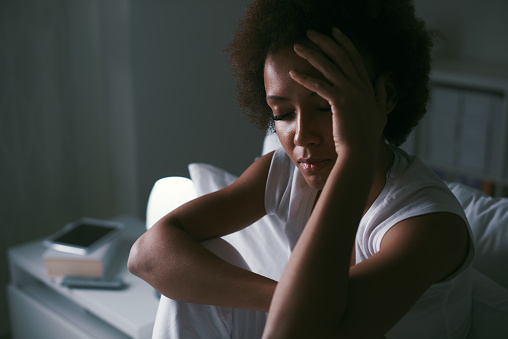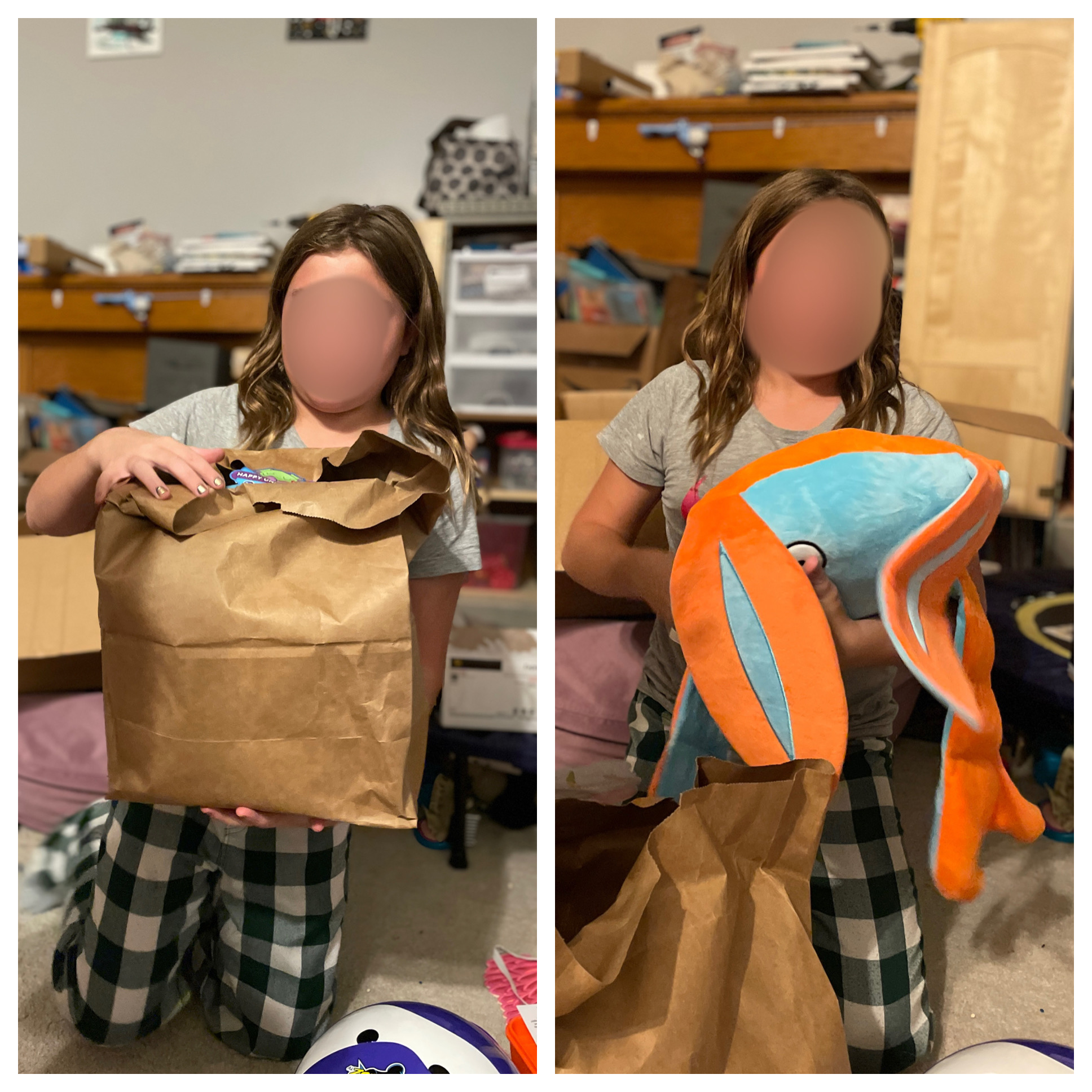7 Ways to Cope with Depression
This is something I know well, something can bring this on for me, and then there's the crying and wondering what if, and I am now depressed and having anxiety, these have helped when I feel down and alone.

Along with anxiety, depression is the most common mental health condition for adults in the U.S. today. Millions of Americans are affected by it on a regular basis. Even if you don’t suffer from depression regularly, you may find yourself feeling down from time to time. This is normal, but it’s important to learn how to cope with these feelings so they don’t cause major interruptions in your life over time.
Build a support network.
Depression can often make you want to isolate yourself from the people around you. You may feel as though you shouldn’t burden them with your problems, or that they wouldn’t understand if you tried reaching out. However, withdrawing yourself from others is actually harmful if you’re working to beat your depression. Sitting with your negative thoughts and feelings alone is a sure way to get buried even deeper in those thoughts.
Building a support network is easier said than done. If you’re anything like me, you’ve probably cut friends off during depressive times, and weren’t sure how to reconnect. The first step is to acknowledge your depression and talk about it with your friends. Then, if something happens, they at least have a head’s up and will check in on you – or hopefully give more grace if you “flake” from time to time.
Construct a strong group of supportive people who you can turn to when your depression gets bad. These should be people you trust to help you with constructive advice and feedback. Avoid any toxic or negative people who will only feed into your depression. Avoid people who don’t “believe” in depression, or are so positive they’re toxic. Not everything is rainbows and sunshine, but we want to keep a positive outlook on life when we can.
Family and friends can be great parts of your support network, but you may also find it helpful to join a support group with others that suffer from depression. Sometimes, groups like these can give you the best techniques for coping with your emotions.
The most important thing is knowing that you aren’t alone. Everyone struggles at some point and that’s why we’re all here – to support each other. Don’t ever hesitate to reach out, it’s the most courageous thing you can do when you’re suffering in a way others can’t see.
Get physically active.
Exercise has a number of healthy benefits, and battling depression is just one of them. It has been scientifically proven that exercise can reduce the symptoms of depression as well as anxiety. It helps your body release endorphins, which boosts your mood and causes you to feel happier.
Being active helps your brain be more open to receiving serotonin, a hormone that increases happiness and reduces the feelings of depression.
Source: https://pubmed.ncbi.nlm.nih.gov/21495519/
There’s no need to run out and join a gym to battle your depression. That can bring with it a whole new host of uncomfortable feelings.
You can start with walking around your neighborhood, even with a friend if possible. A 30-45 minute walk each day, even if it’s the last thing you want to do, can actually have an extremely positive impact on your mood. I know it’s easier said than done, but you can start small and expand your walking perimeter as you get more comfortable getting up and moving each day!
Eat healthy.
Just like putting premium fuel into your vehicle can make it operate better, putting the right foods into your body can help you feel better. Avoid eating too many carbs and processed foods. Instead, opt for healthy meats, fruits, and vegetables that supply your body with the nutrients you need to work properly.
Stay away from stimulants such as coffee or alcohol as well, as they can harm your mental health being known to cause anxiety and increase depressive episodes, respectively.
This doesn’t mean you can’t enjoy food, or a night out with friends. Eating healthy is all about balance. Healthier foods will make your body feel healthier, though, because you’re providing yourself with the best fuel possible. Think about this and choose brain foods to keep your mind sharp and your body in its best shape.
Keep a journal.
Journaling is an effective way to release depressed thoughts from your mind. Even if you are feeling withdrawn from your support network, you can still get the depression out of your head with a pen and paper. Once it’s out, you can then reflect on the feelings and learn how to battle them better.
Journaling when you aren’t as depressed helps as well. This way you can start to see patterns in your mood that can help you recognize triggers to stay away from in hopes to reduce depression in the future. Just 10 minutes of writing each day can help you through depressive bouts and help you have better control over your mental health.
If you find it difficult to know what to write, look up journaling prompts. There are thousands of questions, quotes, or fill in the blank phrases you can use to get the words flowing. There are also guided journals available on Amazon that can help you decide what to write each day.
Learn to love yourself.
This may not be the easiest task to conquer, but if you learn to love yourself, you may find depression easier to handle. Depression can cause us to see ourselves in a very negative light, which only strengthens its power over your mind. The more you love yourself, the less depression can lie to you about how you view yourself.
Let go of all the negative thoughts you currently have about yourself. Recite a few positive affirmations each day in the mirror to help train your mind to think more positively especially when viewing yourself.
Find a new hobby or two that you can enjoy even when depression is trying to rear its ugly head. Distraction is one of my favorite ways to beat depression. It’s different from avoidance; you can still journal, go to therapy, etc. but in the moment, distracting yourself can boost your mood substantially.
Being creative can help express the negativity and release it from your body, so consider those options to cope as well. That could be painting, writing, crafting, making music, cooking, singing, or drawing.
These are all also forms of self care, and you’re the most important person you’ll ever have to care for. Make sure you make time for you to make yourself feel happy, healthy, comfortable, and confident.
Reduce your stress.
Ironically enough, if those of us who fight depression could reduce our stress, we’d probably be depressed less. It’s always one of the first things therapists tell you, right? Stress can manifest itself in our bodies in several ways, with depression being a very common one.
Learn to prioritize yourself and the most important responsibilities in your life. These may include your spouse, your children, and your career.
Once you have your priorities in order, you can start to release anything that isn’t of value to you in some way. Detoxing your life in this manner helps to reduce stress in so many ways.
You’ll no longer feel obligated to take on new responsibilities you won’t enjoy, therefore lessening the load you put on yourself.
Consider a digital and social media detox as well. Dealing with negativity online can be just as harmful as dealing with it face to face. We are often left with our thoughts for far too long, after an internet argument.
Online, people tend to say things that are so cruel, they’d never say them to your face. Pair that with depression and isolation, and it’s a bad, bad mix. Detoxing can help you take a step back from online negativity, which will change your perspective when it’s time to get back online. You’ll be better prepared to set boundaries and enjoy your new-found peace.
Work on sleeping better.
Our minds must rest well each day in order to cope with depression and all the negativity that can come with it. Sleep is vital in fighting off depression, so make it a priority in your life. Create an environment that is conducive to sleeping by keeping the room temperature cool and getting yourself lots of comfortable bedding and pillows. Use a white noise machine too, if you need a little sound when falling asleep.
Attempt to develop a good sleeping schedule in which you go to sleep and wake up at the same time each day. This routine helps your body learn how to rest better by knowing when it’s time to sleep and when it’s time to wake up.
A healthy bedtime routine can also be helpful. Give yourself time to wind down before your head hits the pillow. Unplug from your screens at least an hour before bedtime, too. Use that in between time to read, relax, and do a self-care routine.
There are many positive ways we can battle depression. It’s a common occurrence for many people, so it is important to know that you are not alone if you are struggling mentally. Treat your body and mind like a best friend, and do things that spark joy and happiness in your life. Just doing the few methods mentioned above should help you notice a difference in how you cope with depression in your day-to-day life.
That doesn’t mean all of these tips are a replacement for therapy. With online options like BetterHelp and 7Cups, you can have access to a therapist or listening friend to talk to all the time. Self-care is wonderful, but it’s not going to replace depression medication. If medication is something that helps you, don’t feel ashamed. It’s just one tool in your depression-fighting toolbox.
If you’re ever struggling and it feels too much to handle, reach out to your mental health hotline 1-800-950-NAMI (6264)




